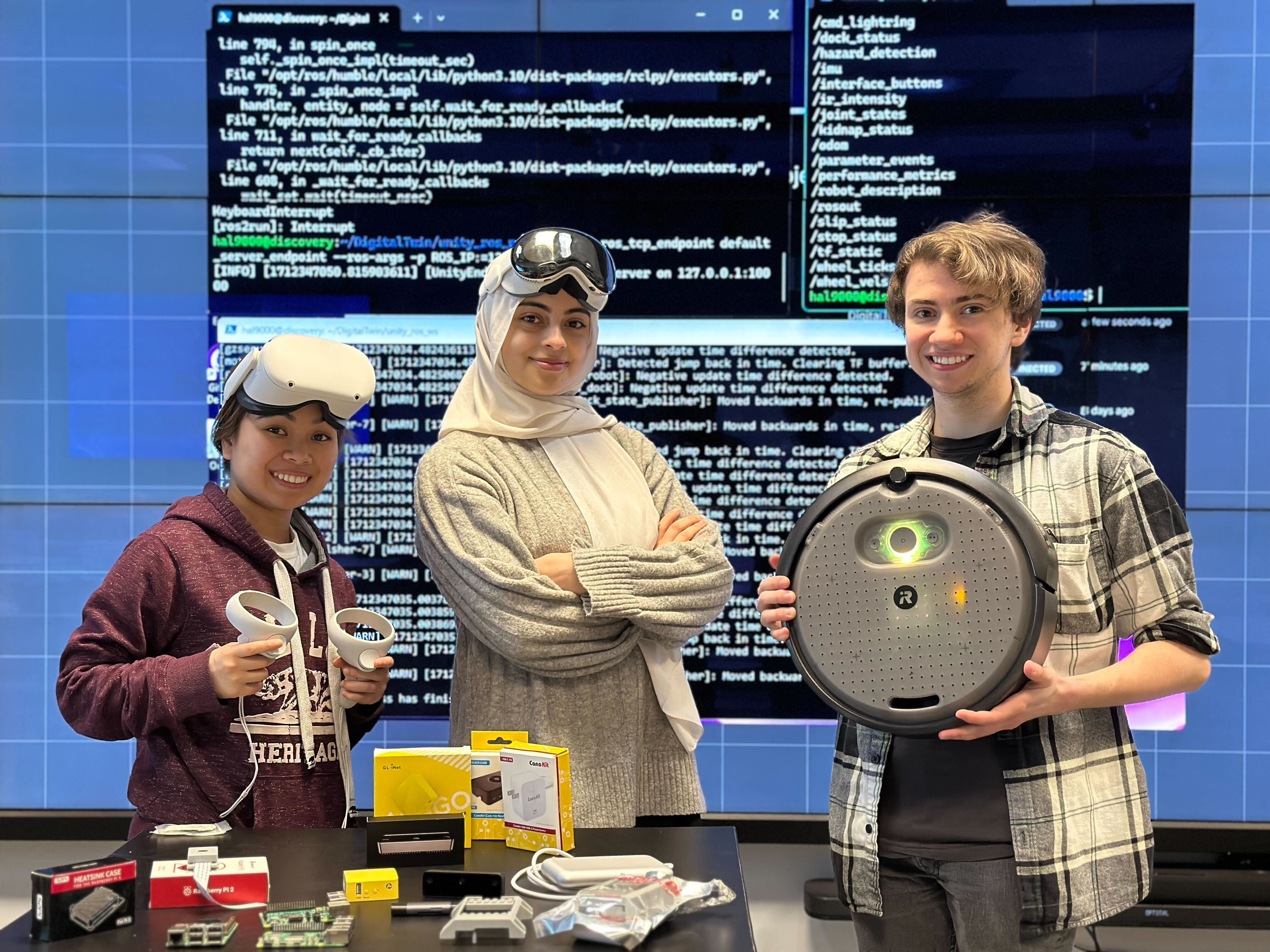
Tele-robotics to Tele-Autonomous Robotics for Isotope Production
The Department of Energy funded Tele-robotics to Tele-Autonomous Robotics for Isotope Production seeks to contribute to securing the U.S. isotope supply chain through primary research to modernize critical supporting infrastructure for the processing of radioisotopes. We will accomplish this by developing a new robotic hotbox (hot cell/glovebox) system incorporating advances in dexterous robotics, human interfaces, digital twins, and artificial intelligence for (1) telerobotic operation driven by a human, initially and, eventually, (2) tele-autonomous operation.
The new hotbox concept is set to revolutionize the industry, replacing the current industry standard of hot cells, which are shielded containment boxes featuring mechanical manipulators for remote handling and processing of radioactive materials. This technology, originally developed in 1945 and preserved for nearly eight decades, will be superseded by our innovative hotbox system, a testament to our commitment to pushing the boundaries of technological advancement.
The deliverables from this research program will substantially reduce the radioisotope industry’s dependence on expensive, highly shielded hot cell infrastructure, revolutionizing chemical processing in radioisotope production. It will do this by:
- reducing process time through the elimination of time-consuming, human-operated mechanical hot cell manipulators;
- improving reproducibility by minimization of human errors achieved through in-line monitoring, artificial intelligence feedback, and optimization of processes through digital twin simulations; and
- providing task-specific clean (contamination-free) processing environments given the scalability, tailorability, and cost-effective fabrication of the telerobotic hotboxes (relative to a traditional hot cell).
Our collective effort will be enriched by our diverse team, where physicists, chemists, roboticists, and computer scientists will collaborate closely to tackle a wide range of chemical processing challenges encountered in isotope production. Your expertise and contribution are integral to our success.
The University of Illinois Chicago effort focuses on human-robot interactions and modeling the robot and environment.
- Students:
- Hal Brynteson [BS 2022 (NIU), MS Student] Graduate Research Assistant
- Aaqel Shaik [BS 2025, MS Student] Graduate Research Assistant
- Faculty/Researchers:
- Nicola Ferrier (Argonne/Northwestern)
- Victor Mateevitsi (Argonne/UIC)
- Yongho Kim (Argonne/Northwestern)
- Michael E. Papka (UIC/Argonne)
- Silvio Rizzi (Argonne/UIC)
- Alumni